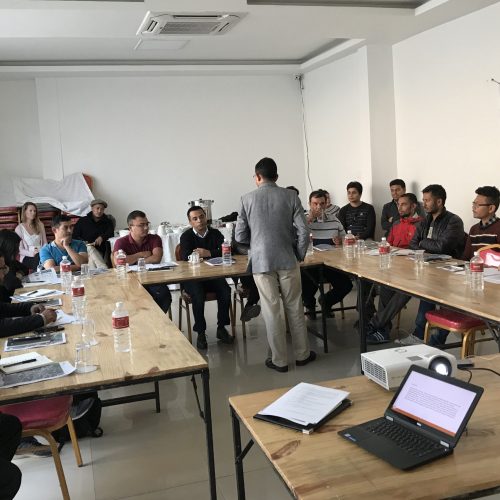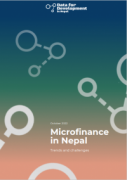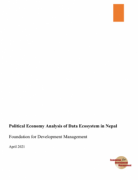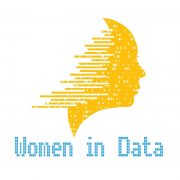
Mapping Nilkantha with Open Street Maps
December 22, 2017
Manual – Open Data for Students
January 5, 2018Private Sector and Open Street Maps
This blog was written by the D4D Program team and is also published on the Open Nepal website.
‘No one knows everything, but everyone knows something’
This was the rallying point behind which the “Open Street Maps for Business” workshop, which was conducted on the 17th of November in Kathmandu. Familiar names in Nepali private sector attended the event with great enthusiasm. Many of the participants expressed how maps and navigation play a key role in the delivery of goods and services to customers. “Foodmandu”, which delivers food to door steps pointed out how their customers and delivery boys must be tracked so that their business operations are seamless. NMB bank, one the biggest banks in Nepal, also pointed out that their operations require tracking of their branches, ATMs and their customer addresses. Other companies in attendance such as Foodmario, Foodmandu, Sarathi, Khalisi and Sastodeal all pointed to the difficulty they face when they have to make deliveries or track their suppliers. So Can Open Street Maps (or OSM for short) solve this problem? The answer definitely is YES!
OSM started out as a crowdsourcing initiative to make maps more robust and accessible. It is one example of how open data can be produced and shared to support a wide range of uses. Kathmandu Living Labs (KLL) have been spear-heading the OSM movement in Nepal since 2012 and were instrumental in coordinating a team of roughly 9000 people from the around the world to map Nepal during the 2015 earthquake. But the use of OSM for business has gained momentum abroad,it is still new for Nepal. The major advantage of open data and OSM for business is the fact that it is free and available in formats that allow it to be used easily. The lively discussion session garnered one “elephant in the room” – how is OSM different from Google maps. The discussion synthesized into the fact that OSM is much more rich, detailed and open for the users. The raw data is owned by the community rather than one particular company. On top of that the flexibility, scope and maturity that is provided by OSM cannot be matched by other services. Currently big companies like Facebook are starting to use OSM.
Open mapping data is one type of open data, which could help the private sector improve their efficiency and build social and economic value. The use of open data by the private sector is a relatively new area, internationally as well as in Nepal. In a country like Nepal, the level and nature of demand and use of data in private sector is a black box in itself. For example, various business associations and their members are actively involved in influencing policy in Nepal, but the use of data in such activities is not known. Also, it is not clear what data is used for decision making by investors, although anecdotally, the business sector can find data from government. In the context of Nepal, it is hoped that open data can help the private sector create new innovations and increase the efficiency of existing operations as well as support informed decision making. Over the coming weeks we hope to engage further with the private sector to grow their use and supply of open data.
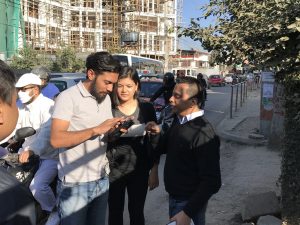
“OSM for Business” workshop was co-hosted by Kathmandu Living Labs and the Data for Development in Nepal program implemented by The Asia Foundation in Partnership with Development Initiatives. For more information please contact gaurav.basnyat@asiafoundation.org .

